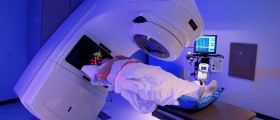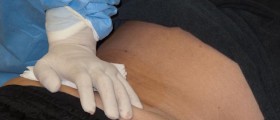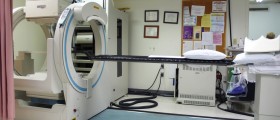
When someone suffers from esophageal cancer, his/her treatment depends on many different factors. Basically, the stage of the disease and the physical state of the patient are factors commonly taken into consideration. Furthermore, the treatment itself is conducted by several health experts including an oncologist, surgeon and a radiation oncologist.
Treatment for Initial Stage of Esophageal Cancer
If this cancer is noticed early, the most common type of implemented treatment is surgical removal of the affected tissue. Nevertheless, chemotherapy and radiotherapy are also possible methods which can be applied prior to the surgery, making the process easier and more successful. If this is the case, the radiation therapy takes place at the same time as the chemotherapy, the latter consisting of cisplatin and fluorouracil. One the patient is exposed to such treatment for about two months, the surgery may be conducted.
The Surgical Procedure for Esophageal Cancer
Basically, this type of surgery focuses on removing the affected part of the esophagus, connecting the remaining, healthy part with the rest of the stomach. Since the length of the esophagus is compromised this way, especially if the cancer is located in the upper part of this organ, the stomach is lifted up so that the procedure may be done successfully. Alternatively, the surgeon may remove parts of the small intestine in order to make up for the lost portions of the esophagus. If this is the case, the rest of the stomach is left intact.
Also, if the cancer has affected the lower part of the esophagus, the surgeon will remove the troublesome portion, along with the upper part of the stomach, binding the remaining parts together. Unfortunately, even with the most successful surgeries of this type, there are great chances that the cancer may return.Non-Surgical Procedures for Esophageal Cancer
Sometimes, the patient is not capable of enduring the surgery. Then, his/her condition is treated through chemotherapy and radiation solely. The types of drugs involved in the chemotherapy can vary, depending on the patient's condition. If the cancer has not reached stage IV, affecting other organs as well, this kind of non-surgical treatment can prove to be quite successful, even though surgery is more likely to lead to recovery.
Treatment for Metastatic Esophageal Cancer
Curing patients who have reached the stage IV of esophageal cancer is not possible. However, chemotherapy is used for prevention of any additional growth or spread of the tumor, allowing patients to live as long as possible.
Finally, a new therapy called photodynamic therapy is used to treat advanced stages of this cancer too. Basically, the drug is injected into the body of the patient. Then, it enters the tumor and gets activated by special laser lights the surgeons uses. Once this happens, the drug attacks the tumor cells.

















Your thoughts on this
Loading...